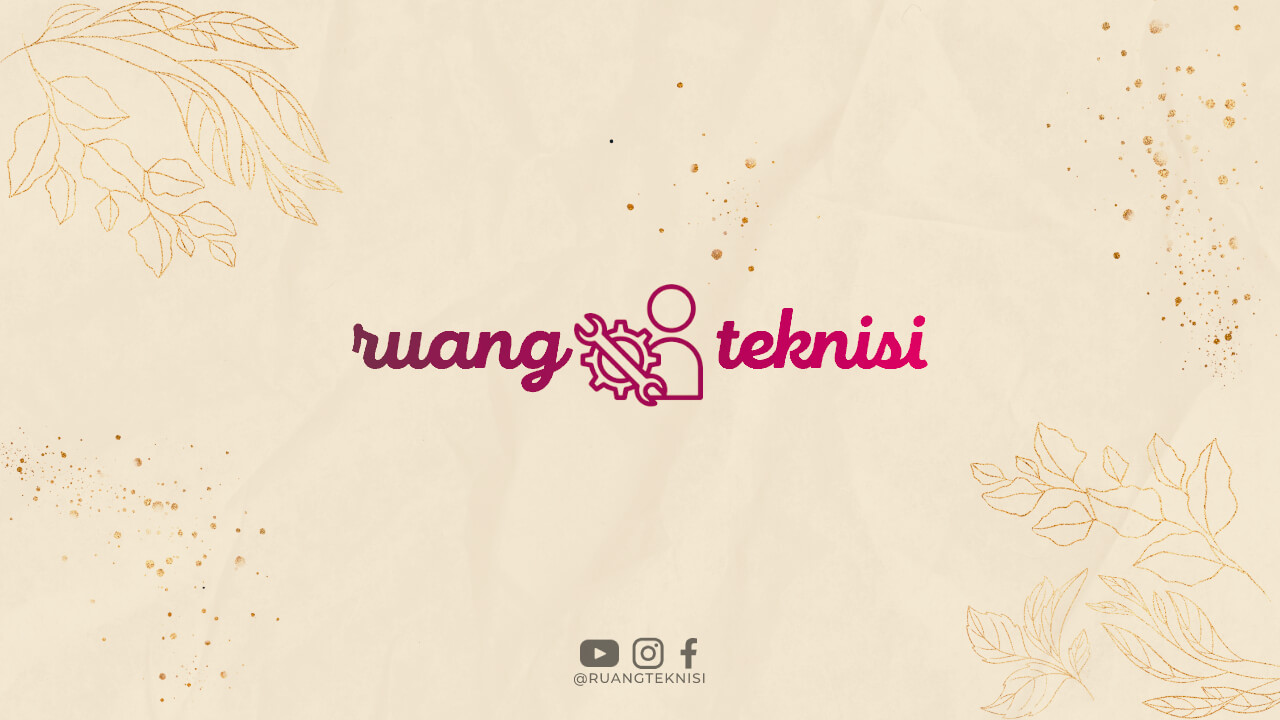Introduction
Applying to universities can be an overwhelming process, especially when it comes to admission assessments. These assessments play a significant role in determining whether or not you will be accepted into your dream university. To navigate this crucial step successfully, it is essential to understand the process and prepare thoroughly. This article will guide you through the necessary steps to excel in your university admission assessments.
Research the Assessment Format
Before delving into preparation, it is crucial to research and understand the format of the admission assessments. Different universities may have varying formats, including multiple-choice exams, written essays, interviews, or a combination of these. Familiarize yourself with the structure and requirements of the assessments to tailor your preparation accordingly.
Understanding Multiple-Choice Exams
Multiple-choice exams are common in university admission assessments. These exams typically consist of a series of questions with several possible answer choices. It is essential to practice these exams to improve your ability to analyze and select the correct answers efficiently. Pay attention to any specific instructions or guidelines provided by the university.
Preparing for Written Essays
Written essays are another component often included in admission assessments. These essays require critical thinking, effective communication, and the ability to articulate your thoughts clearly. Practice writing essays on various topics to enhance your writing skills and develop a coherent and well-structured argument. Seek feedback from teachers or mentors to improve your writing style.
Mastering Interview Techniques
Some universities conduct interviews as part of their admission assessments. Preparation for interviews involves practicing common interview questions, researching the university and its programs, and developing strong communication and interpersonal skills. Pay attention to body language, tone of voice, and overall confidence during mock interviews to make a positive impression on interviewers.
Start Early
Procrastination can be detrimental when it comes to preparing for university admission assessments. Start your preparation as early as possible to allow ample time for thorough studying and practice. Starting early will also help alleviate stress and ensure you are well-prepared when the assessment dates approach.
Benefits of Starting Early
Starting early provides several advantages in the university admission assessment process. It allows you to cover all the necessary topics in detail, revise and review concepts multiple times, and seek assistance if needed. Additionally, starting early gives you the opportunity to identify and address any knowledge gaps or weak areas in your understanding.
Creating a Detailed Study Plan
When starting early, it is crucial to create a detailed study plan to stay organized and on track. Break down your preparation into smaller, manageable tasks and allocate specific time slots for each. Consider the weightage of different subjects or sections in the assessment and allocate more time to areas that require additional attention. A well-structured study plan will help you stay focused and ensure you cover all essential subjects.
Utilizing Technology Tools and Resources
Take advantage of technology tools and resources available to aid your early preparation. Online platforms offer a plethora of educational resources, practice exams, and study materials. Utilize educational apps, digital flashcards, and online forums to enhance your learning experience and connect with fellow students preparing for similar assessments. These resources can supplement your traditional study methods and provide additional support.
Create a Study Schedule
Establishing a study schedule is crucial to stay organized and cover all the necessary topics. Break down your preparation into smaller, manageable tasks and allocate specific time slots for each. A well-structured study schedule will help you stay focused and ensure you cover all the essential subjects.
Setting Realistic Study Goals
When creating your study schedule, set realistic study goals that are specific, measurable, attainable, relevant, and time-bound (SMART goals). For example, aim to complete a certain number of practice questions or revise a specific topic within a set timeframe. Setting achievable goals will help you track your progress and stay motivated throughout your preparation.
Allocating Time for Each Subject
Allocate sufficient time for each subject based on its weightage in the admission assessments. Consider the difficulty level of each subject and your own strengths and weaknesses. Allocate more time to subjects that require additional attention or that you find more challenging. However, ensure you maintain a balanced approach and allocate adequate time to all subjects.
Creating Short-Term and Long-Term Study Plans
Consider creating both short-term and long-term study plans. Short-term plans can focus on daily or weekly goals, while long-term plans can span several months leading up to the assessment. This approach will help you maintain consistency and ensure you cover all necessary topics without feeling overwhelmed.
Review Academic Foundations
University admission assessments often test your understanding of core academic subjects. Review fundamental concepts and theories relevant to your desired field of study. Strengthen your knowledge in areas such as mathematics, science, literature, and critical thinking.
Identify Key Concepts and Topics
Identify the key concepts and topics that are likely to be covered in the admission assessments. Review your high school coursework and syllabi to refresh your memory on foundational concepts. Consult textbooks, online resources, and supplementary materials to gain a comprehensive understanding of these key areas.
Refine Problem-Solving Skills
Many university admission assessments include problem-solving questions. Practice solving different types of problems to refine your analytical and critical thinking skills. Break down complex problems into smaller, more manageable steps and develop effective problem-solving strategies. Seek guidance from teachers or mentors to improve your problem-solving approach.
Stay Updated with Recent Developments
In addition to reviewing core academic subjects, stay updated with recent developments and advancements in your desired field of study. Read academic journals, attend webinars or conferences, and follow reputable sources of information. Demonstrating knowledge of current trends and research can impress admission assessors and showcase your genuine interest in the field.
Seek Guidance from Teachers and Mentors
Don’t hesitate to reach out to your teachers or mentors for guidance and support. They can provide valuable insights, recommend study materials, and help clarify any doubts you may have. Their experience and expertise can significantly aid your preparation.
Approaching Subject-Specific Guidance
If you struggle with specific subjects, seek guidance from teachers who specialize in those areas. They can provide additional resources, suggest alternative learning approaches, and offer personalized assistance. Utilize their expertise to strengthen your understanding and improve your performance in these subjects.
Benefitting from Mentorship
Mentorship can provide invaluable support during your university admission assessment preparation. Seek out mentors who have successfully navigated the same process and have insights into the assessment requirements. They can offer guidance, share their personal experiences, and provide motivation throughout your preparation journey.
Engaging in Mock Assessments with Feedback
Teachers and mentors can assist you in organizing mock assessments and provide feedback on your performance. Participating in mock assessments under their supervision will help you identify areas of improvement, refine your exam-taking strategies, and build confidence. Actively engage in discussions with them to gain a deeper understanding of the assessment expectations.
Practice Sample Questions
Make use of sample questions and past assessment papers to familiarize yourself with the types of questions you may encounter. Practice under timed conditions to improve your speed and accuracy. Regular practice will help you identify areas that require further attention.
Understanding Question Types
Sample questions provide insight into the different question types that may appear in the admission assessments. Familiarize yourself with multiple-choice, short answer, essay, and scenario-based questions. Understanding the question types will help you develop appropriate answering strategies and allocate time effectively during the actual assessment.
Utilizing Online Practice Platforms
Online practice platforms offer a wide range of sample questions and mock exams for various admission assessments. These platforms often provide instant feedback, detailed explanations, and performance tracking features. Make use of these resources to gauge your progress, identify weak areas, and focus your preparation accordingly.
Analyzing Correct and Incorrect Answers
After practicing sample questions, thoroughly analyze both correct and incorrect answers. Understand the reasoning behind the correct responses and identify any patterns or common mistakes in your incorrect answers. This analysis will help you refine your understanding of concepts and improve your overall performance.
Enhance Writing Skills
Many university assessments involve written essays or statements. Work on improving your writing skills by practicing essay writing techniques, grammar, and vocabulary. Pay attention to structuring your arguments coherently and effectively communicating your thoughts.
Understanding Essay Structure
Mastering essay structure is essential for writing compelling and well-organized essays. Familiarize yourself with the introduction, body, and conclusion format. Practice crafting strong thesis statements, developing supporting arguments, and summarizing your ideas effectively. Pay attention to paragraph transitions and logical flow within your essays.
Developing Strong Vocabulary
Enhance your vocabulary by reading extensively and actively incorporating new words into your writing. Use a thesaurus to find synonyms and antonyms that can enrich your essays. However, use complex vocabulary judiciously and ensure it enhances rather than hinders the clarity of your writing.
Pr
Practicing Time Management
Time management is crucial when it comes to writing essays within a limited timeframe. Practice timed writing sessions to improve your ability to brainstorm ideas, outline your essay, and write coherently and concisely under time pressure. Pay attention to the allocation of time for each section of your essay to ensure you complete your thoughts within the given time limit.
Seeking Feedback on Writing
Share your practice essays with teachers, mentors, or peers to receive constructive feedback. Take note of their suggestions for improvement, whether it be regarding your writing style, grammar, or overall structure. Incorporate their feedback into your subsequent writing practice to enhance your skills.
Develop Critical Thinking
University admission assessments often evaluate your critical thinking abilities. Engage in activities that enhance your analytical skills, such as solving puzzles, participating in debates, or reading thought-provoking literature. Critical thinking is a skill that can be honed with practice.
Engaging in Analytical Reading
Read articles, essays, and books that challenge your assumptions and require you to think critically. Analyze the arguments presented, identify underlying biases, and evaluate the evidence provided. Engaging in analytical reading will help you develop the ability to dissect complex ideas and enhance your critical thinking skills.
Participating in Debates and Discussions
Join debate clubs, discussion groups, or online forums where you can engage in intellectually stimulating conversations. Practice presenting logical arguments, defending your viewpoints, and respectfully considering opposing perspectives. Participating in debates and discussions will improve your ability to analyze different viewpoints and strengthen your critical thinking abilities.
Challenge yourself with brain teasers, puzzles, and logical reasoning exercises. These activities can sharpen your problem-solving skills, enhance your ability to think critically, and improve your capacity to analyze complex situations. Dedicate regular time to solving puzzles to keep your mind sharp and agile.
Stay Updated on Current Affairs
Stay informed about current events and relevant news, especially in areas related to your desired field of study. Many assessments include topics that test your awareness and understanding of current affairs. Read newspapers, follow reputable news sources, and engage in discussions to broaden your knowledge.
Reading News from Various Sources
Expose yourself to news from diverse sources to gain a well-rounded understanding of current affairs. Explore multiple perspectives on the same issue and critically evaluate the credibility of the sources you rely on. This practice will help you develop a nuanced perspective and excel in assessments that require knowledge of current events.
Following Industry-Specific News
If you have a specific field of interest, stay updated with industry-specific news and developments. Subscribe to relevant newsletters, journals, or blogs to deepen your understanding of the latest advancements and trends. Demonstrating knowledge and engagement in your desired field can impress admission assessors.
Participating in Current Affairs Discussion Groups
Join discussion groups or online forums dedicated to current affairs. Engage in conversations about ongoing events, share your thoughts, and listen to different viewpoints. Participating actively in such groups can help you refine your understanding, broaden your knowledge, and improve your ability to articulate your opinions effectively.
Practice Time Management
Time management is crucial during university admission assessments. Practice answering questions within the allocated time limits to ensure you can complete the assessments on time. Time management skills will help you avoid rushing through questions and allow you to allocate sufficient time to each section.
Simulating Exam Conditions
When practicing sample questions or mock assessments, create an environment that closely resembles the actual exam conditions. Set a timer, eliminate distractions, and adhere to the time limits strictly. This practice will help you develop a sense of pacing and ensure you are comfortable with managing your time effectively during the actual assessment.
Prioritizing Questions and Sections
Within each assessment, identify the questions or sections that require more time or carry higher weightage. Prioritize these areas while managing your time. If you encounter a challenging question, consider briefly moving on to the next one and revisiting it later. This approach will help you maximize your score by allocating time appropriately.
Practicing Time-Tracking Techniques
During practice sessions, make a conscious effort to track the time spent on each question or section. Use techniques such as setting mental checkpoints, using rough time estimates, or dividing the available time equally among questions. Regularly evaluate your progress against the time allocated to ensure you are on track.
Join Study Groups
Consider joining study groups or finding study partners who are also preparing for university admission assessments. Collaborating with others can help you gain different perspectives, share resources, and motivate each other. Discussing and explaining concepts to others can also enhance your understanding.
Selecting Committed and Like-Minded Study Partners
Choose study partners who are equally committed to their preparation and share similar academic goals. Ensure that the group dynamics are conducive to productive studying. Engage in regular study sessions, where you can discuss concepts, solve problems together, and clarify doubts. This collaborative approach will enhance your learning experience.
Organizing Group Discussions and Debates
Organize group discussions or debates on challenging topics to deepen your understanding and develop your ability to articulate your thoughts. Encourage each group member to take turns presenting on specific topics, allowing everyone to contribute and learn from each other. These discussions foster critical thinking and improve your communication skills.
Sharing Study Resources and Techniques
Share study resources, such as textbooks, practice exams, or online materials, with your study group. Each member can bring their unique perspective and expertise to the group, enhancing the overall learning experience. Discuss effective study techniques, time management strategies, and any difficulties or challenges you encounter during your preparation.
Take Mock Assessments
Mock assessments simulate the real assessment environment and help gauge your preparedness. Find online or offline resources that offer mock assessments and take them seriously. Analyze your performance, identify weak areas, and work on improving them before the actual assessment.
Creating a Mock Assessment Schedule
Allocate specific dates and times for taking mock assessments in your study plan. Treat these assessments as if they are the actual exams, following all guidelines and time limits. By practicing under simulated exam conditions, you can become familiar with the format, manage test anxiety, and refine your exam-taking strategies.
Reviewing Mock Assessment Results
After completing each mock assessment, thoroughly review your performance. Analyze correct and incorrect answers, identify patterns of mistakes, and pay attention to time management. Understand the reasoning behind correct answers and seek clarification for concepts you find challenging. Use these insights to guide your subsequent study and practice sessions.
Seeking Guidance on Areas of Improvement
If you struggle with specific sections or consistently perform poorly in certain areas, seek guidance from teachers or mentors. They can provide targeted assistance, recommend additional resources, or suggest alternative study strategies. Focus on improving these weak areas to enhance your overall performance in the actual assessment.
Relax and Manage Stress
While preparing for university admission assessments is crucial, it is also essential to take breaks, relax, and manage stress. High levels of stress can hinder your performance. Engage in activities you enjoy, practice mindfulness techniques, and maintain a healthy work-life balance.
Incorporating Relaxation Techniques
Integrate relaxation techniques such as deep breathing exercises, meditation, or yoga into your daily routine. These techniques can help calm your mind, reduce anxiety, and improve your focus. Dedicate specific time slots for relaxation and self-care to recharge and maintain a positive mindset throughout your preparation.
Pursuing Hobbies and Interests
Take breaks from studying to engage in activities that bring you joy and relaxation. Pursuing hobbies or interests outside of your academic preparation can provide a much-needed mental and emotional break. Whether it is reading a novel, playing a musical instrument, or spending time with loved ones, these activities will help you rejuvenate and maintain a healthy balance.
Connecting with Supportive Peers
Surround yourself with a community of peers who are also going through the same preparation process. Share your experiences, discuss challenges, and provide support to each other. Having a strong support system can alleviate stress, boost motivation, and remind you that you are not alone in this journey.
Seek Professional Help if Required
If you find yourself struggling with specific subjects or concepts, consider seeking professional help. Private tutors or online resources can provide targeted assistance and help you overcome difficulties. Don’t hesitate to ask for help when needed.
Identifying Areas Needing Assistance
If you consistently struggle with specific subjects or concepts despite your best efforts, it may be beneficial to seek professional help. Identify the areas where you need additional assistance and consider engaging a private tutor or seeking online resources that specialize in those subjects. Professional guidance can provide personalized support and help you overcome obstacles.
Utilizing Online Educational Platforms
Online educational platforms offer a wide range of resources, tutorials, and interactive lessons tailored to specific subjects. These platforms often provide step-by-stepexplanations, practice exercises, and the opportunity to ask questions to qualified instructors. Take advantage of these resources to supplement your self-study and gain a deeper understanding of challenging topics.
Engaging in Group Tutoring or Study Sessions
If several students in your network are facing similar challenges, consider organizing group tutoring or study sessions with a qualified tutor. Group sessions can foster collaborative learning, allow for peer-to-peer teaching, and provide a supportive environment for addressing questions and concerns. This approach can be cost-effective and provide a different perspective on the subject matter.
Attending Subject-Specific Workshops or Classes
Look for workshops or classes offered by educational institutions, community centers, or online platforms that focus on the subjects you find challenging. These workshops often provide targeted instruction, practice sessions, and access to experienced instructors who can address your specific needs. Taking advantage of such opportunities can help you overcome obstacles and gain confidence in those subjects.
Familiarize Yourself with University Values
Each university has its own set of values and principles. Take the time to understand the values of the universities you are applying to. Aligning your preparation and assessment responses with these values can enhance your chances of being accepted.
Researching University Mission Statements
Explore the official websites and mission statements of the universities you are interested in. Pay attention to their core values, educational philosophies, and long-term goals. Understanding the university’s mission and vision will help you tailor your application and assessment responses to align with their expectations and demonstrate your compatibility with their academic environment.
Exploring University Programs and Initiatives
Investigate the specific programs, initiatives, and extracurricular activities offered by the universities you are applying to. Look for opportunities that resonate with your interests, goals, and values. Demonstrating knowledge and genuine enthusiasm for these programs in your assessment responses can highlight your commitment to contributing to the university community.
Connecting with Current Students or Alumni
Reach out to current students or alumni of the universities you are considering. Engage in conversations to gain insights into their experiences, the university culture, and the values that are cherished within the community. Their firsthand perspectives can provide valuable guidance in tailoring your application and preparing for the admission assessments.
Conclusion
Navigating university admission assessments requires thorough preparation, dedication, and a strategic approach. By researching the assessment format, starting early, creating a study schedule, and practicing sample questions, you can excel in these crucial assessments. Remember to stay updated, seek guidance, manage stress effectively, and align your preparation with the values of your desired universities. With the right mindset and preparation, you can increase your chances of securing admission into your dream university.




